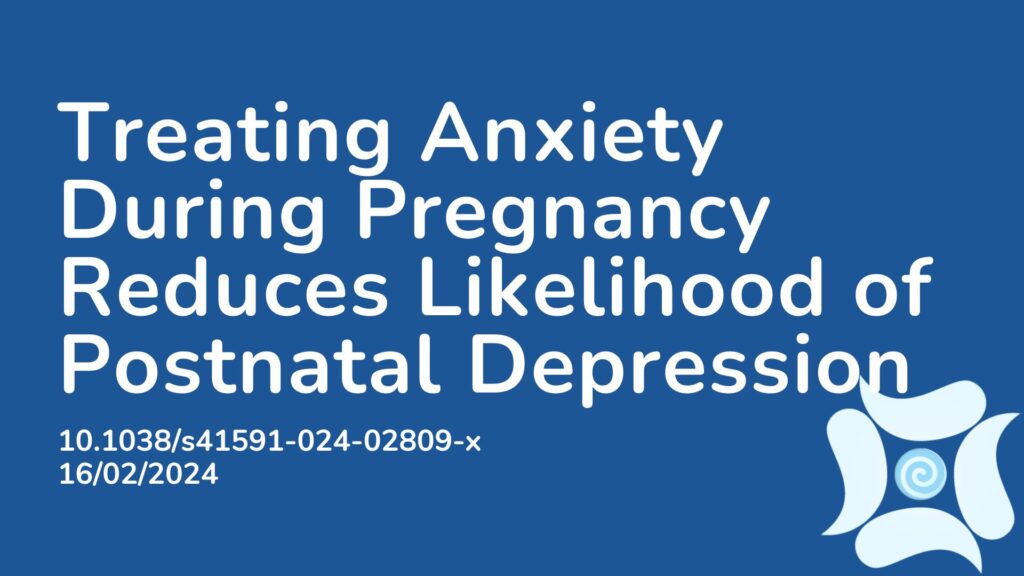Summary:
Women who are pregnant often experience anxiety, especially where there is uncertainty of resources and support. Anxiety also strongly predicts common mental health illnesses such as post-natal depression. This study evaluated how effective treating pre-natal anxiety would be on post-natal anxiety and depression outcomes. It was a randomized controlled trial conducted in Pakistan with women who were less than 22 weeks pregnant and had mild anxiety, but no diagnosis of clinical depression. Participants were randomized to cognitive behavioral therapy which consisted of six therapy sessions delivered whilst pregnant, or told to seek care on their own. The primary outcome was measuring rates of post-natal depression and/or generalized anxiety disorder at 6 weeks post birth. Overall, 755 women were checked during their post-natal period, 375 were there assigned to the therapy group and 375 from the exterior care group. The results showed there was an 81% reduced odds of having either a major depressive episode or moderate-to-severe anxiety for women who received the intervention therapy. Overall, only 12% of women in the intervention group developed major depression at 6 weeks post-partum, versus 41% in the control group. The authors concluded that cognitive behavioural therapy and attention paid to anxiety during the pregnancy period significantly reduced anxiety and post-natal depression during the post-partum period.
Abstract:
Anxiety experienced by women during pregnancy is highly prevalent, especially in resource-poor settings and strongly predicts postnatal common mental disorders (CMDs), anxiety and depression. We evaluated the effectiveness of an anxiety-focused early prenatal intervention on preventing postnatal CMDs. This study was a phase 3, two-arm, single-blind, randomized controlled trial conducted in Pakistan with women who were ≤22 weeks pregnant and had at least mild anxiety without clinical depression. Participants were randomized to the Happy Mother–Healthy Baby program, based on cognitive behavioral therapy, consisting of six one-on-one intervention sessions in pregnancy delivered by non-specialist providers, or to enhanced care alone. The primary outcome was major depression, generalized anxiety disorder or both at 6 weeks after delivery. Overall, 755 women completed postnatal assessments (380 (50.3%), intervention arm; 375 (49.7%) enhanced-care arm). The primary outcomes were met. Examined jointly, we found 81% reduced odds of having either a major depressive episode (MDE) or moderate-to-severe anxiety for women randomized to the intervention (adjusted odds ratio (aOR) = 0.19, 95% CI 0.14–0.28). Overall, 12% of women in the intervention group developed MDE at 6 weeks postpartum, versus 41% in the control group. We found reductions of 81% and 74% in the odds of postnatal MDE (aOR = 0.19, 95% CI 0.13–0.28) and of moderate-to-severe anxiety (aOR = 0.26, 95% CI 0.17–0.40), respectively. The Happy Mother–Healthy Baby program early prenatal intervention focusing on anxiety symptoms reduced postpartum CMDs. ClinicalTrials.gov identifier NCT03880032.
Article Publication Date: 16/02/2024
DOI: 10.1038/s41591-024-02809-x




